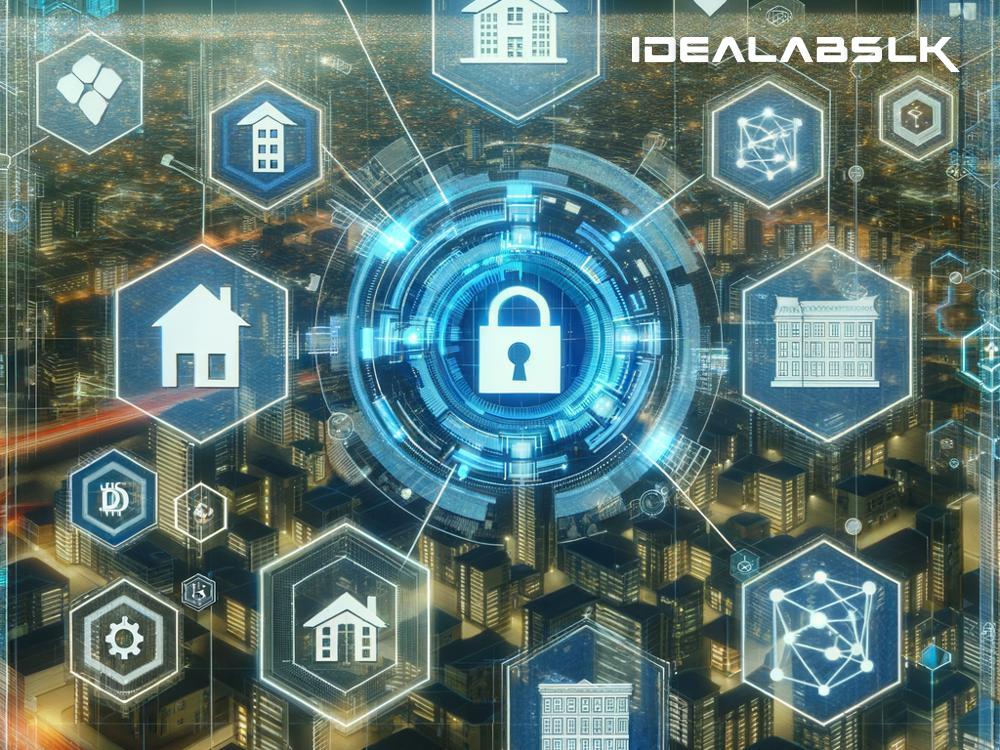Title: Making Property Management Easier with Blockchain
Are you tired of the endless paperwork and slow processes in managing properties? What if I told you there's a technology that could make things a lot simpler, faster, and safer? Yes, we're talking about blockchain! It's not just for cryptocurrencies like Bitcoin anymore. Blockchain technology is revolutionizing the real estate sector, making property management more straightforward and efficient. Let's dive into how it's changing the game.
What is Blockchain, Anyway?
Imagine a big, virtual ledger that everyone can see but no one can tamper with. This ledger records every transaction that ever happened in it, like selling a house or renting a property. That's blockchain for you. It's a digital, secure, and transparent way of recording transactions that's almost impossible to hack or cheat.
The Old vs. The New
Traditionally, managing real estate involves a boatload of paperwork, third-party mediators like agents and lawyers, and a lengthy process of back-and-forth communication. It's not just slow; it's also costly and sometimes not very secure. Enter blockchain. With its ability to cut through the complexity and streamline transactions, blockchain is poised to transform how we deal with properties.
How Does Blockchain Help in Real Estate?
1. Making Transactions Faster and Cheaper
Blockchain gets rid of the need for many middlemen in real estate transactions, like agents, lawyers, and banks. This not only speeds up the process but also reduces the costs involved. Imagine being able to buy or sell a property much faster than you traditionally would and saving money while doing it!
2. Ensuring Security and Transparency
Since blockchain records every transaction in a way that's permanent and easy to verify, it greatly reduces the chances of fraud. You can easily check the history of a property, like who owned it and when, all in a secure digital platform. This transparency builds trust among buyers, sellers, and investors.
3. Streamlining Property Management
For property managers, blockchain can be a real game-changer. It can automate payments, from rent collection to property maintenance expenses, making the whole process more efficient. Plus, smart contracts (self-executing contracts with the terms directly written into code) can automatically enforce terms of a lease, reducing the hassle of manual oversight.
4. Improving Accessibility and Liquidity
Blockchain can make real estate investments more accessible to a broader audience by tokenizing properties—turning the property value into digital tokens that can be easily bought and sold. This can also increase the liquidity of real estate investments, giving investors the flexibility to buy or sell parts of properties quickly and easily.
Real-World Examples of Blockchain in Real Estate
-
Property Sales: Companies are experimenting with selling properties through blockchain, streamlining the sales process and making it more transparent.
-
Lease Management: Using smart contracts for lease agreements simplifies enforcement and operations, from ensuring timely rent payment to automatic renewals.
-
Identity Verification: Blockchain can securely store digital IDs, making the verification process quicker and safer for both landlords and tenants.
The Road Ahead
While the integration of blockchain into real estate is still in its early stages, its potential is undeniable. It’s set to make property transactions more secure, transparent, and accessible. However, for widespread adoption, issues like regulatory acceptance, scalability, and public awareness need to be addressed.
Bottom Line
Blockchain is not just a buzzword; it's the future of real estate. By enhancing property management through digitalization, it promises a world where buying, selling, and managing properties is as easy as a few clicks. So, if you're in the real estate business, it's time to get familiar with blockchain. It might just be the innovation you didn't know you were waiting for.
As technology evolves, so does the way we manage and interact with real estate. Blockchain offers a glimpse into a more efficient, secure, and transparent future for property management. By embracing this digital revolution, we're not just simplifying transactions; we're also paving the way for more people to invest and participate in the real estate market. The future of real estate is here, and it's decentralized, digital, and democratized.

